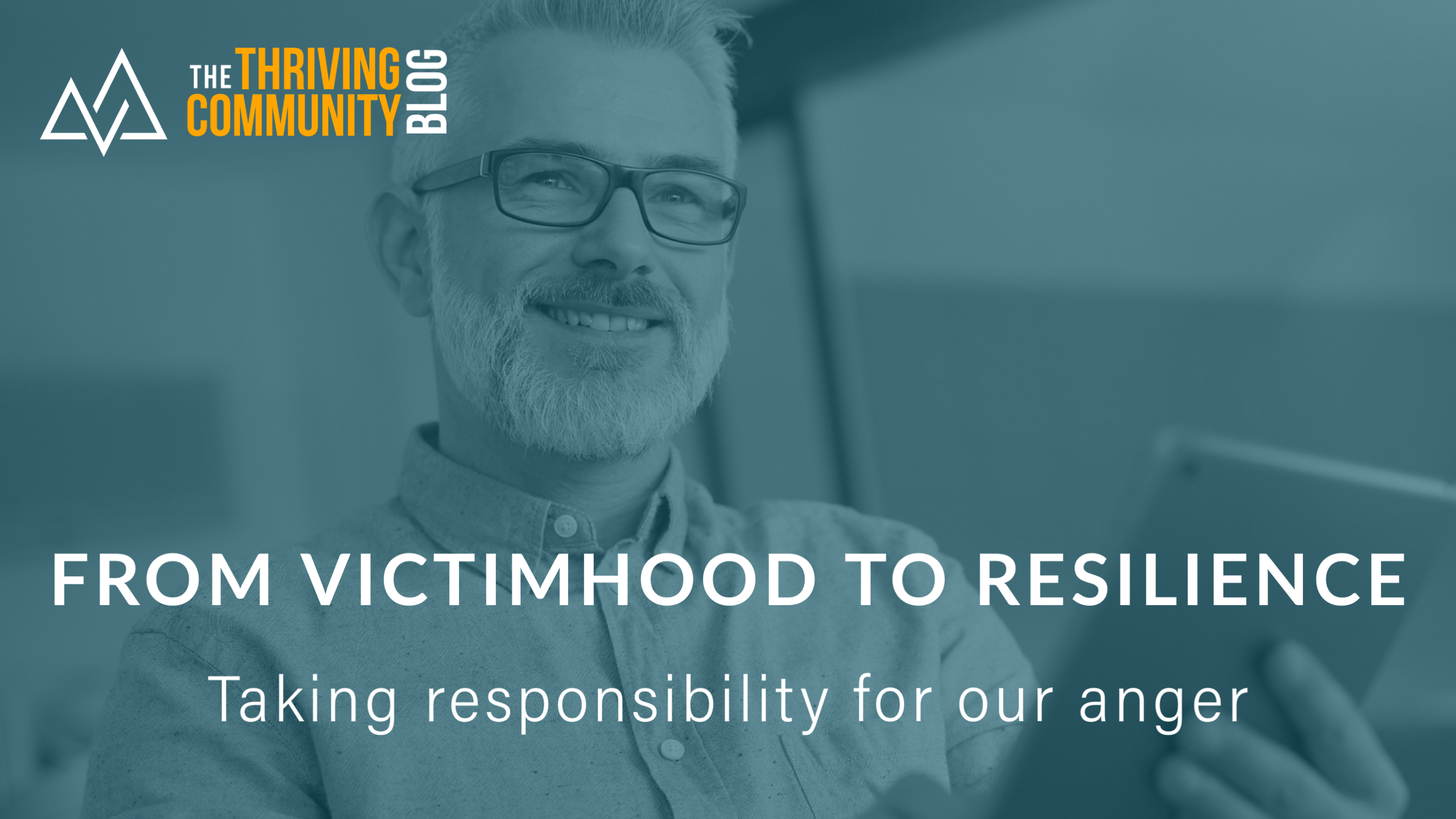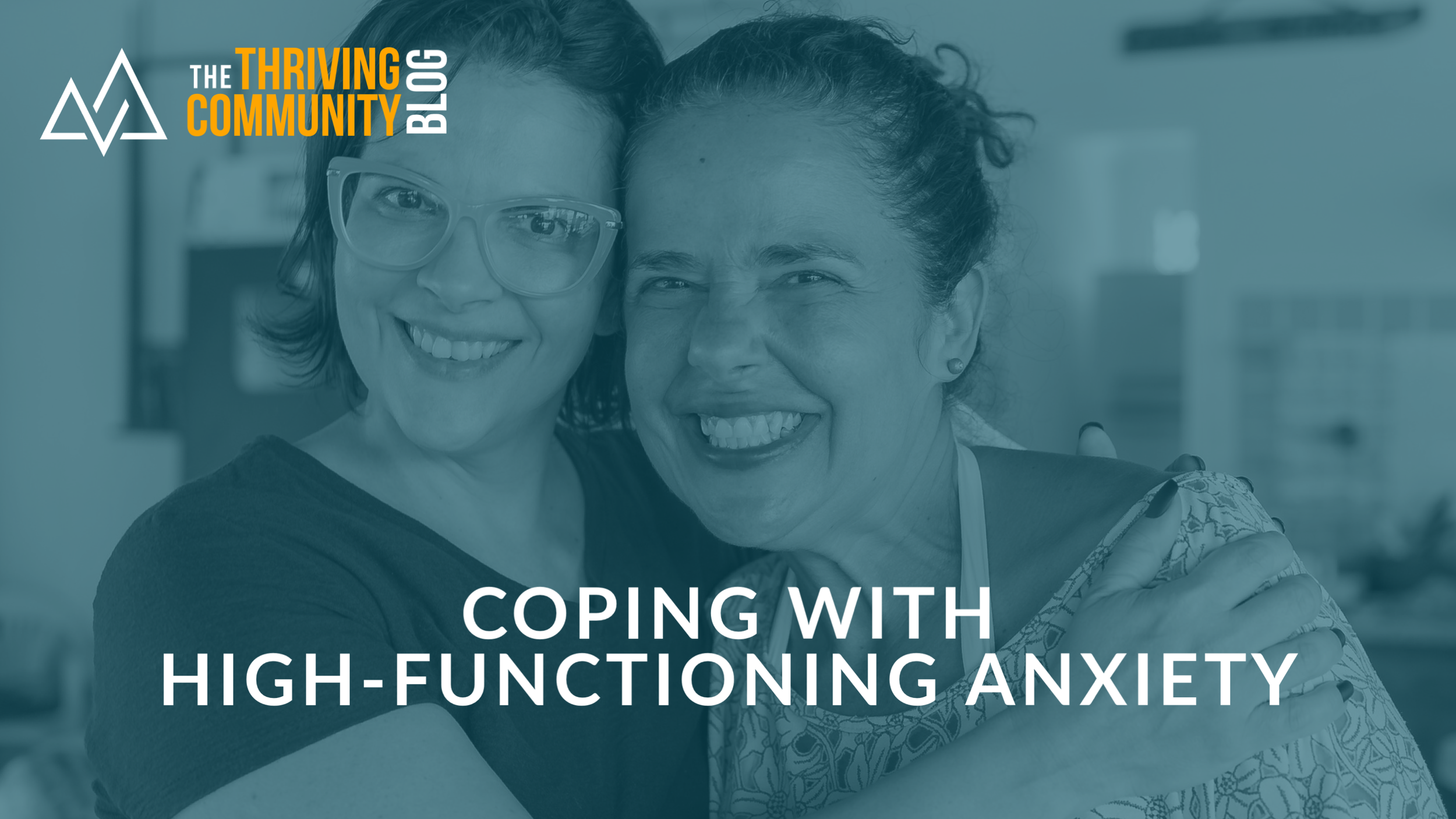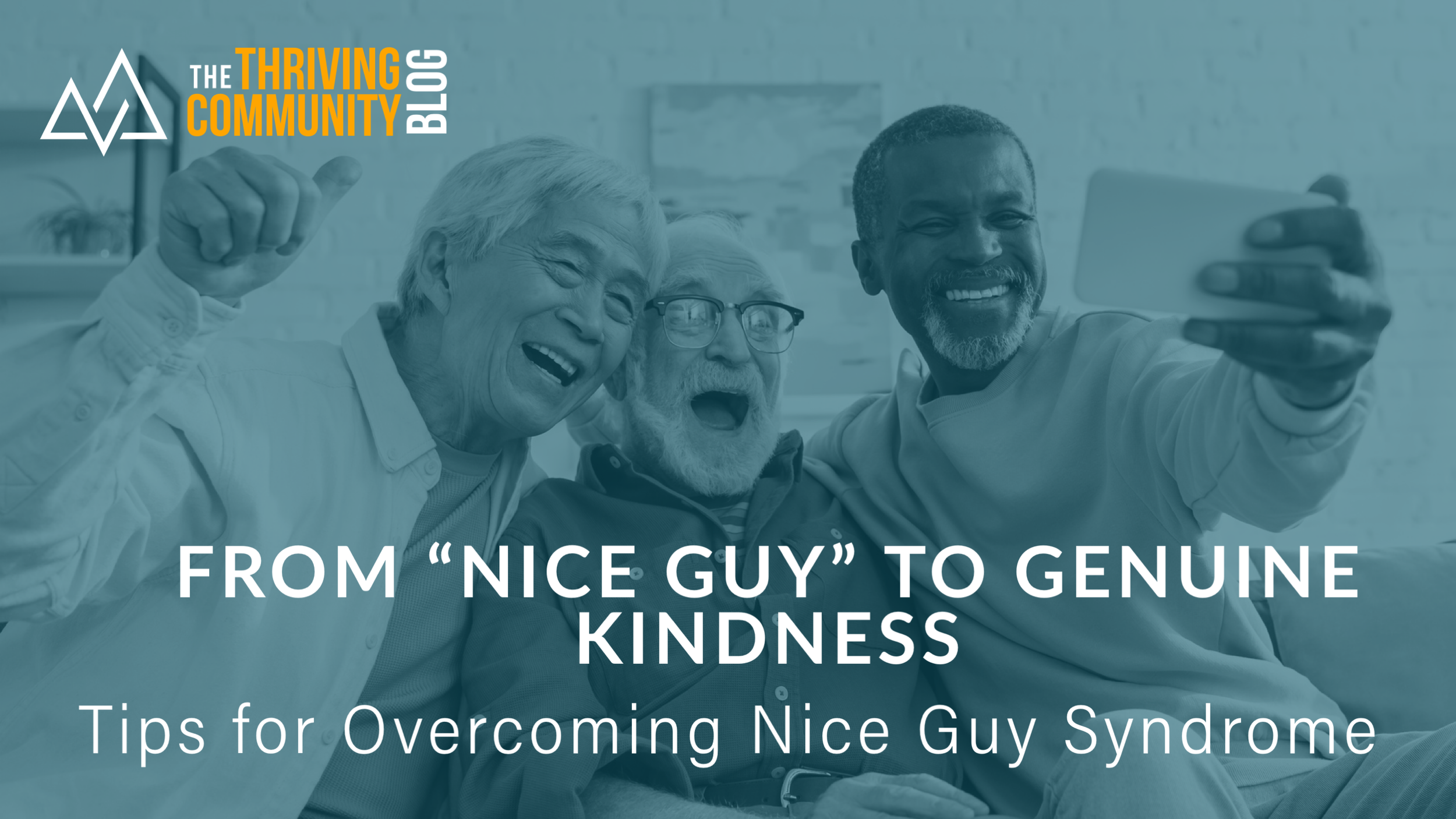
the Thriving Community
Overcoming Passivity: Tips for Taking Control of Your Life
Do you often feel like life happens to you without much control over the outcome? Do you struggle to assert yourself in social and professional situations, often finding it difficult to communicate your opinions or needs? If so, you may have a passive mindset holding you back from reaching your full potential.
From Victimhood to Resilience: Taking Responsibility for Our Anger
Anger is a natural emotion that we all experience at some point. It can respond to various situations, such as frustration, disappointment, or perceived injustice. However, while anger is normal, how we manage and express, it can have significant consequences for our relationships and overall well-being. People often deal with their anger by blaming others for how they manage it. This approach can ultimately interfere with experiencing true self-worth and genuine empowerment.
Coping with High-Functioning Anxiety
High-functioning anxiety is when individuals experience anxiety symptoms but can still perform their daily activities. The external facade can often mask internal distress, leading to emotional turmoil. While cognitive-behavioral therapy and medication can help manage the condition, practicing good self-care can also significantly impact anxiety symptoms. Here are some self-care tips for managing high-functioning anxiety.
Unmasking the Nice Guy Syndrome: Breaking Free from the Approval Trap
The Nice Guy Syndrome is a term coined by Dr. Robert Glover, and it refers to a set of characteristics and behaviors exhibited by individuals who believe that being "nice" is the key to receiving love, having their needs met, and living a problem-free life. However, this life strategy often fails to deliver the desired outcomes, leading Nice Guys to try even harder, often to no avail. In this blog post, we'll explore some common characteristics of the Nice Guy Syndrome.
Unmasking the Nice Guy Syndrome: Unpacking the Harmful Beliefs & Behaviors
At first glance, "Nice Guy" may seem like a positive descriptor for men who exhibit polite behavior toward others. However, the reality is that the Nice Guy Syndrome represents a deeply ingrained belief system that can lead to problematic behaviors and toxic relationships. In this blog, we'll explore the harmful beliefs and behaviors associated with the Nice Guy Syndrome and their impact on individuals and relationships.
Busting the Myths about Recovery
Recovery is a process that takes time, effort, and patience. It involves a series of stages that individuals go through as they overcome addiction and work towards a healthier life. However, several myths and misconceptions can create obstacles as people progress through the stages of change in addiction. In this blog, we will discuss some of the most common myths about the five stages of recovery.
Redefining Masculinity: Embracing Healthy and Inclusive Perspectives
Masculinity, a concept deeply ingrained in our society, has undergone significant scrutiny and reevaluation in recent years. As we strive for a more inclusive and equal world, it is crucial to challenge and redefine the traditional understanding of masculinity. In this blog, we will explore the multifaceted nature of masculinity, shed light on this social construct, and highlight the importance of embracing healthy and inclusive perspectives.
Gaslighting: The Slow Burn of Psychological Abuse
Gaslighting might seem like a confusing buzzword thrown around these days, but trust me, it's more than just a trendy term. By the time we're done here, you'll have a rock-solid grasp of what gaslighting truly entails and why it's crucial to spot it, particularly within your family dynamics. So, prepare yourselves for a deep dive into the intricate and often murky waters of gaslighting – because knowledge truly is power, especially when safeguarding your mental and emotional well-being within your closest relationships.
Trauma Bonding: Understanding Emotional Attachment to Toxic Relationships
Have you ever found yourself unable to leave a relationship even though you know it's toxic? You may be trauma-bonded to the person, meaning you have developed an emotional attachment to someone who abuses you. This bond can occur in relationships with a partner, parent, sibling, or friend.
From "Nice Guy" to Genuine Kindness: Tips for Overcoming Nice Guy Syndrome
Being kind and considerate is a desirable trait often admired and respected. Helping others, being pleasant, and practicing generosity can make us feel good about ourselves and positively impact those around us. However, if we start to expect something in return for our kindness and feel disappointed or resentful when it doesn't happen, we may be dealing with what is commonly referred to as "nice guy syndrome" (NGS).
True Self-Care: Why It Matters and How to Find Yours
Self-care has become a buzzword recently, but what does it mean? Many of us associate self-care with bubble baths, massages, and indulging in our favorite treats. While these activities can be enjoyable, they don't always provide the long-lasting benefits we need to refuel and recharge.











